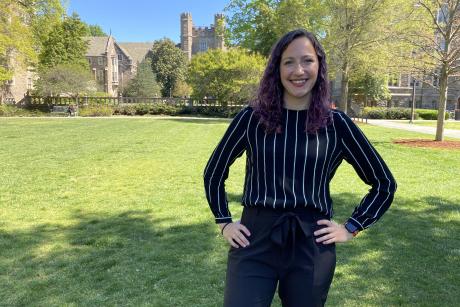
Volcano Conception on the island of Ometepe in Lake Nicaragua
Published August 4, 2014, last updated on October 5, 2017 under Voices of DGHI
By Betsy Asma, MSc-GH Student
Engineering World Health Summer Institute
“Home” is a completely subjective term. I’ll never forget the plane ride back to the US, departing from Managua during sunrise. As soon as the wheels touched down on the Atlanta International Airport runway, a friend and fellow EWH student sitting beside me turns and whispers, “We’re home.”
But neither of us lived in Atlanta, Georgia. We both still had 2 hour connecting flights to catch as well as long drives from our respective “home” airports, but it was amazing how the runway of the Atlanta airport, our first contact with US soil after 9 weeks abroad, felt like home.
Returning to the US was of course bittersweet because for 9 weeks this summer, Nicaragua had been my home. I had finally adjusted to the extreme heat, was effectively conversing in Spanish (barely!) and was learning to embrace rice and beans for every meal.
Looking out the window during take-off at the volcanic landscape so different from the US, I felt sad to be leaving this “home.” This realization must have been subconsciously apparent as I went through customs in Atlanta when the US Customs officer asked, “Did you have any friends in Nicaragua?” In my sleep deprived state, I replied with a cheeky “Well, I do now!” (Luckily, he had a sense of humor and let me back into the country despite my sarcasm!)
My biggest take away from working in a developing world hospital was that they are surprisingly well-run, but public sanitation and overall nutrition seem to be larger issues needing to be addressed. Fixing issues of sanitation and nutrition include more challenging solutions requiring educational and behavioral changes however I hate using the word “fix” because that means something is wrong. My time abroad taught me that just because something is different, doesn’t mean that it is wrong and in need of fixing. Nicaraguan citizens are capable, intelligent and motivated; they don’t need “fixing”, just education and collaboration because they really want to make their country a better place to receive healthcare.


